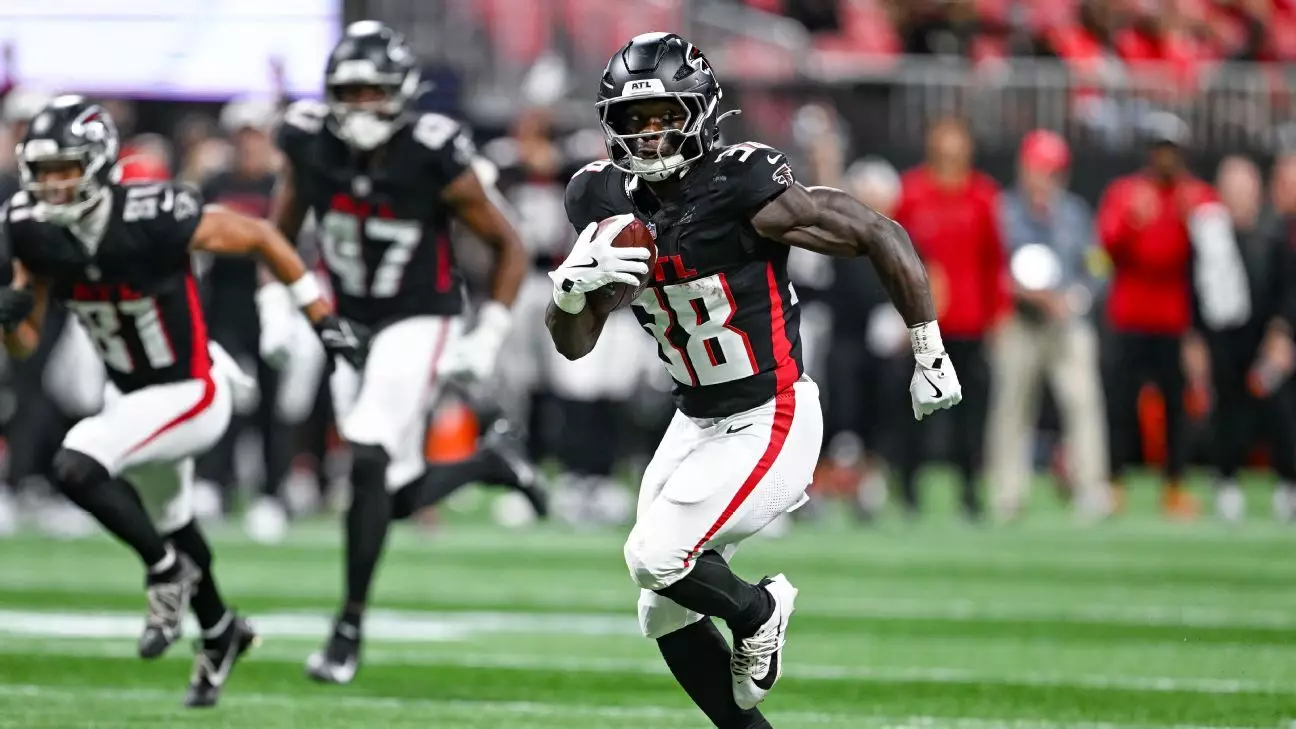The emotional rollercoaster experienced by NFL players often underscores the profound link between individual adversity and collective resilience. The recent injury incident involving Atlanta Falcons rookie Nathan Carter and Detroit Lions’ Morice Norris exemplifies this reality, revealing how moments of crisis can serve as catalysts for personal growth and team chemistry. Norris’s severe concussion, which temporarily halted the game and drew on-field medical intervention, was a stark reminder of football’s inherent risks. Yet, the subsequent updates indicating his recovery reveal a narrative far beyond physical injury: one of human perseverance and the importance of mental fortitude.
Carter’s reaction to Norris’s injury underscores a crucial aspect often overlooked in competitive sports—the capacity to process traumatic events with compassion and maturity. Rather than succumbing to fear or guilt, Carter internalized the incident as part of the game, emphasizing his faith and trust in divine oversight. His ability to channel anxiety into focus demonstrates a broader point: resilience isn’t merely about physical toughness but also about psychological strength. Carter’s acknowledgment of his faith as a grounding force elevates the conversation to a recognition that mental peace is essential in navigating life’s unpredictable challenges, whether on the gridiron or off.
Turning Adversity into Opportunity: The Power of Personal Growth
In the aftermath of the accident, Carter’s breakout performance was not simply a matter of athletic skill but also a manifestation of emotional maturity. His 63 yards on nine carries, punctuated by a stunning 43-yard touchdown run, represented more than just a statistical achievement; it embodied a moment of personal redemption. The celebratory reactions from teammates like Bijan Robinson and Tyler Allgeier symbolize the camaraderie and collective spirit that sport fosters, transforming individual resilience into team strength.
Carter’s journey from an undrafted free agent with raw talent to a promising NFL prospect exemplifies the Sandlot principle: perseverance and relentless effort open doors that talent alone may not unlock. His exceptional measurables—namely his blazing 4.4 40-yard dash, massive vertical leap, and broad jump—are testament to physical potential, but it is his mental toughness that solidifies his worth in the eyes of coaches and teammates alike. Embodying relentless determination, Carter uses setbacks not as barriers but as fuel to improve, showcase his skills, and secure his place in the league.
The Role of Faith and Character in Overcoming Challenges
One of the most compelling facets of Carter’s story is his reliance on faith as a guiding principle. His comments about playing for the Lord reflect a perspective that transcends mere athletic ambition, positioning his faith as a source of peace amid chaos. This spiritual grounding appears to have played a pivotal role in allowing him to process both his own performance pressures and the tragic injury incident. In a world dominated by metrics and performance anxiety, Carter’s openness about his faith injects a vital space for emotional honesty and moral clarity.
Furthermore, his conscientious gesture of reaching out directly to Norris via social media epitomizes the character qualities vital for leadership—empathy, humility, and genuine concern. Such actions elevate his profile from the realm of raw talent to that of a conscientious teammate who understands the broader impact of his actions and experiences. These qualities are essential not only for individual success but also for fostering a positive, resilient team environment capable of weathering setbacks and tragedy alike.
From Underdog to Emerging Star: The Promise of Perseverance
Much of Carter’s narrative underscores the importance of seizing opportunities amid adversity. His status as an undrafted free agent inherently placed him at a disadvantage, demanding extraordinary effort and confidence to survive in a competitive environment. His performance in camp, especially after the recent incident, indicates a player who refuses to be defined by setbacks but instead uses them as motivation to excel.
Carter’s story challenges the conventional narrative of success being solely the product of talent; it highlights how resilience, faith, and a relentless work ethic are equally crucial. His participation in a fierce competition for a roster spot exemplifies strategic perseverance—each carried effort adding up to a potential career breakthrough. In a league riddled with uncertainty, his rise serves as a testament that grit and character often outshine pure physical ability.
In the end, Nathan Carter’s journey underscores a broader lesson: resilience isn’t about avoiding pain but embracing it as part of growth. The incident involving Norris was an unfortunate reminder of football’s risks, yet the subsequent stories of recovery, faith, and perseverance reveal a deeper truth—adversity, when faced with courage and compassion, can lead to transformation. Carter’s emergence from the shadows of injury and doubt into a potential star exemplifies how the true power of sport lies not merely in victory but in the human spirit’s unyielding capacity to endure, adapt, and thrive.


Leave a Reply